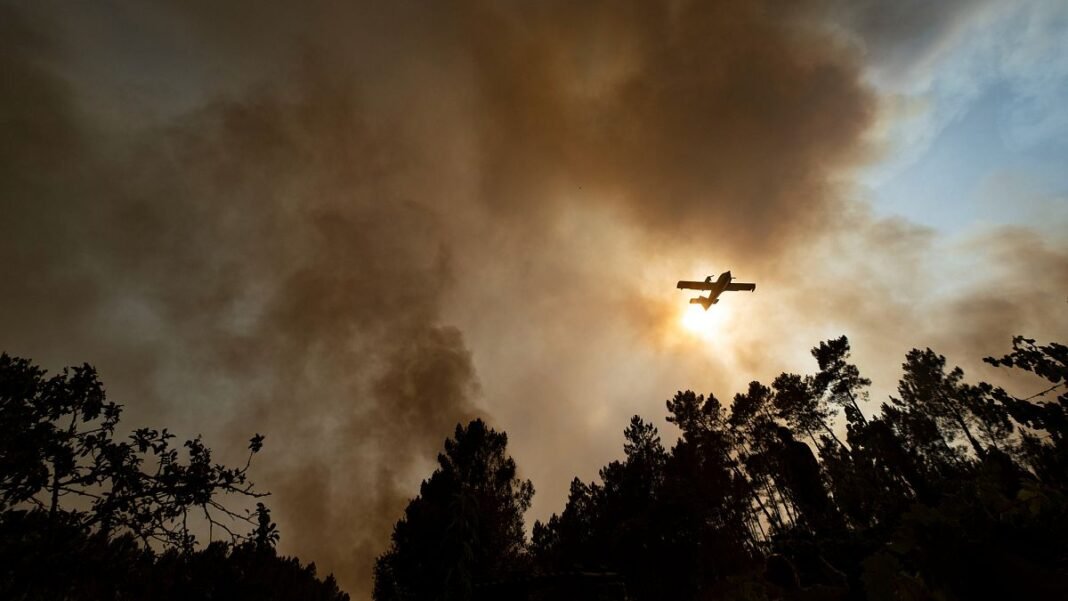It’s published
Mainland Portugal will be on alert from midnight on Sunday, as the risk of wildfires has been exacerbated as a result of “a rather severe hot climate” at maximum temperatures expected to range from 36 to 44 degrees Celsius.
The announcement was made on Saturday by internal management minister Maria Lucia Amaral. It will take effect until 11:59pm on August 7th.
“This decision stems from the need to maintain very high temperatures and low humidity levels and adopt preventive and special measures to address the risk of fires in most of the mainland Portugal,” the minister explained.
During this period, she added that the following exceptional measures will be implemented, including:
“Prohibit access, movement and persistence within forest spaces in accordance with local government forest fire prevention plans. Prohibit combustion and burning issued, prohibiting work in forest spaces or other country spaces, and using machines to implement other country spaces.
Amaral said there are some very specific exceptions to these restrictions found in the Portuguese government portal.
Episodes of Portugal’s severe hot weather
A massive amount of heat from North Africa has been on top of the Iberian Peninsula since Sunday. This means that Portugal and Spain will experience even higher temperatures that can reach 45 degrees Celsius.
Until next Wednesday, Portugal is expected to see some harsh hot weather episodes. Maximum temperatures between 36°C and 40°C are expected for most of the country, and between 41°C and 44°C inside Allentejo, Tagos Valley and Douro Valley.
High temperatures are expected to drop in the Algarve on Monday. The Algarve is expected to occur along the rest of the coast and extend until Tuesday.
However, Porto, Braga, Bragança, Viana do Castelo and Vila Real will be Red Alert on Monday.
IPMA indicates “tropical nights are expected on most territories,” with lowest temperatures varying between 20 and 25 degrees since Monday.
As a result of the heat wave, all districts on the mainland of Portugal except Faro have received orange warnings.
The second most serious orange warning on three scales is issued by IPMA in the event of moderate to high risk weather conditions.
A less serious yellow warning is issued when there is a risky situation for a particular activity depending on the weather.
